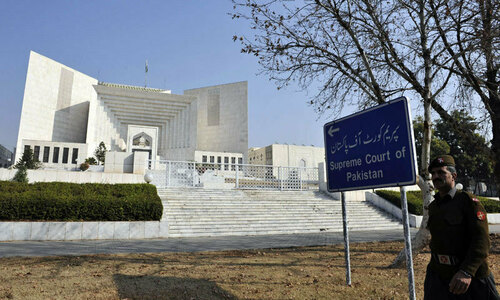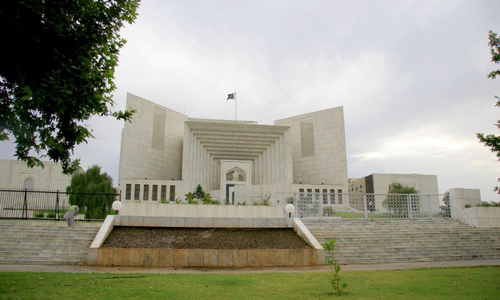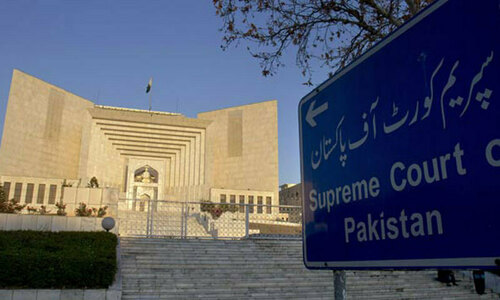ISLAMABAD: The Intelligence Bureau (IB) employees sacked after the Aug 17 Supreme Court judgement were not appointed on political grounds and possessed the prescribed qualifications for the job, Barrister Aitzaz Ahsan said during the hearing on Tuesday of a set of petitions seeking review of the decision which had rendered almost 17,000 people jobless.
Barrister Aitzaz cited a Supreme Court ruling in the 2015 judges pension case, arguing before a five-judge bench that the judgement had laid down that a decision could not have a retrospective effect unless specified in the order.
The verdict carried a specific directive that the pension already given should not be recovered, but no such benefits should be extended in future to those judges who were removed for taking oath under the Provisional Constitution Order.
On the eve of his retirement, Justice Mushir Alam gave a ruling on Aug 17 this year which declared as illegal and unconstitutional a PPP-era law, the Sacked Employees (Reinstatement) Ordinance Act 2010 (SERA). Hundreds of people were inducted into government organisations or promoted after the law took effect.
Aitzaz Ahsan recalled a 2009 court verdict on a petition by the Sindh High Court Bar Association against the emergency imposed by former president Pervez Musharraf on Nov 3, 2007, pointing out that the verdict had declared the constitution of the Islamabad High Court illegal, but protected its employees by sending them to the surplus pool.
But when Justice Umar Ata Bandial, who headed the larger bench, asked Aitzaz Ahsan whether he was suggesting that these employees be sent to the surplus pool, the latter said such a step was taken only when there were no vacancies. There was no such issue in the present case, he stated.
Barrister Aitzaz produced the copy of a notification issued by the Establishment Division when these employees were dismissed in February 1997, pointing out that although the services of civilians were terminated, the military personnel were never touched.
The counsel argued that the Aug 17 judgement heavily relied upon a constitutional misinterpretation, adding the court judgements should always “apply prospectively and not retrospectively”.
Justice Syed Mansoor Ali Shah wanted to know whether the Supreme Court can strike down any legislation done by parliament. Aitzaz Ahsan replied that judicial verdicts always lean towards saving a law or a piece of legislation. To substantiate his argument, he cited a 2010 judgement on an appeal by Dr Mubashir Hassan in the NRO case. Justice Shah wondered what the urgency was behind the reinstatement of so many individuals after a lapse of over 10 years. “In the absence of any war, or disease or any other crisis, what was so special about these employees that they were reinstated after more than 10 years.”
The judge asked Aitzaz Ahsan to enlighten the court what rights would the reinstated individuals be entitled to and what benefits they would get after working for 10 or 12 years even if their appointments were declared to be illegal. The counsel contended that his clients were appointed during the second term of Benazir Bhutto as prime minister (Oct 1993 to Nov 1996) and were sacked on the last day of the caretaker government in February 1997.
“They were removed through an executive, and not legislative, order,” Aitzaz Ahsan recalled. “It is disturbing that the executive is allowed to remove employees in such a manner.”
The counsel contended that the Aug 17 judgement had “legal and foundational defects” and relied upon executive orders or on court verdicts like a 2013 decision in a case of shoulder promotion which endorsed executive actions. “Through the SERA, a wrong was righted,” he argued.
Sardar Latif Khosa appeared before the court on behalf of the State Life Insurance Corporation and the Sui Northern Gas Pipelines.
Published in Dawn, December 8th, 2021














































